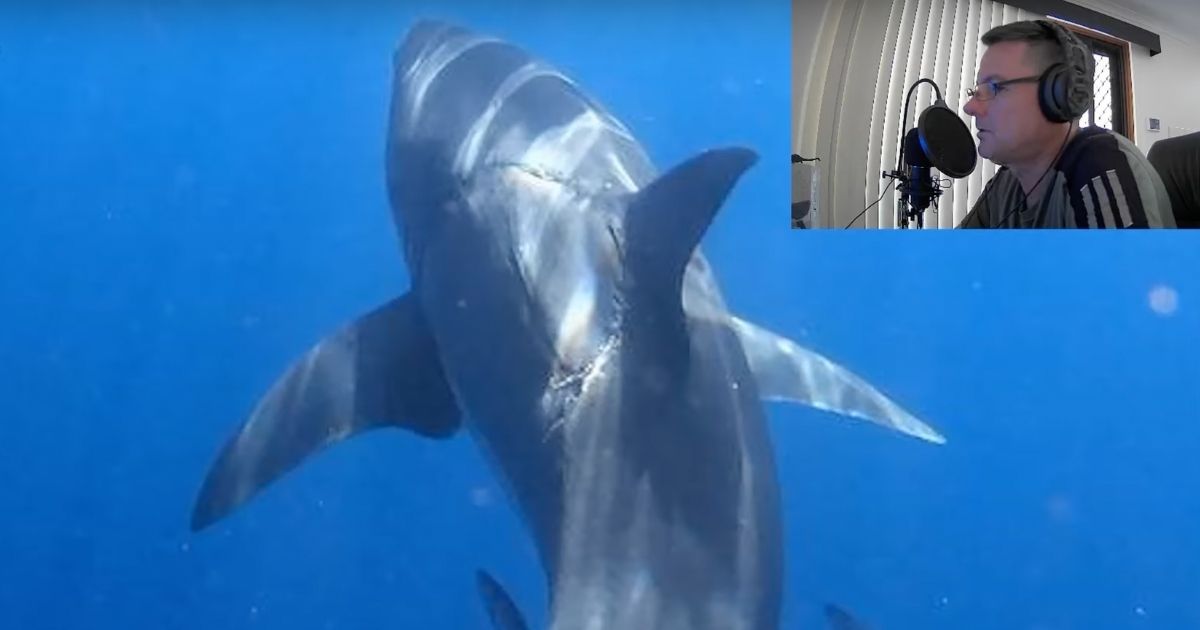In a world of savagery and power, one female great white shark bears one phenomenal scar of her survival.
Photographer Jalil Najafov took a photo of a massive great white female shark in 2019 while diving in Isla Guadalupe, Mexico. What set this creature apart from the rest was a ring of teeth marks, suggesting that something even more massive than the 15-foot shark had attacked her.
Najafov posted the photo to his Instagram account last month.
He told CNN that he had mislaid the memory card from the trip and just recently found it.
“I have been working with sharks and shark content for many years. I have a lot of experience in this niche,” Najafov said. “I know for sure when I see something rare. I have never seen such a huge shark scar.”
“On rare occasions, during mating season among sharks, ‘mating scars’ appear on female sharks’ bodies caused by the males holding onto them,” Najafov explained, according to CBS.
“These scars are mostly deeper cuts and punctures, indicating a more forceful motivation such as coercive mating from the male’s side,” he said.
On his Instagram account, Najafov quoted Tristan Guttridge, a behavioral ecologist and wildlife presenter for Discovery’s Shark Week, as saying that courtship, shark-style, was not responsible for the unique scar.
“I’d rule out mating probably due to position as the wound looks like it’s healed a fair bit and although mating scars can be nasty they are more superficial than that,” he is quoted as saying.
“The shape of it to me likely indicates a bite from another shark – seems a bit extreme for defense but it’s a large shark itself so predation from another shark would also be unlikely hmmmm…got me thinking I sent to Michael Domeier for his thoughts — my feeling is attack from another shark,” Guttridge continued.
[firefly_embed]
[/firefly_embed]
Domeier, director of the nonprofit Marine Conservation Science Institute, said this was more likely about territory or pecking order than mating.
“I’m confident this is competitive aggression. I keep hearing people (colleagues) describe this sort of thing as territorial aggression, but these highly migratory sharks don’t have a traditional territory. But they do not tolerate conspecifics except for the rare instances where there seems to be some social bond between certain individuals (documented in South Australia),” Domeier explained, according to the Instagram post.
“That scar will heal to the point it won’t be a good distinguishing mark,” Domeier continued.
All of this led Najafov to conclude his Instagram post by writing, “So I can say that I was very lucky to photograph this shark and such a huge scar before it healed.”
Sharks, he said, often get a bad rap.
“I love sharks, and I absolutely enjoy them while diving,” he said, according to CNN. “Sharks are not monsters!”
This article appeared originally on The Western Journal.

























 Continue with Google
Continue with Google